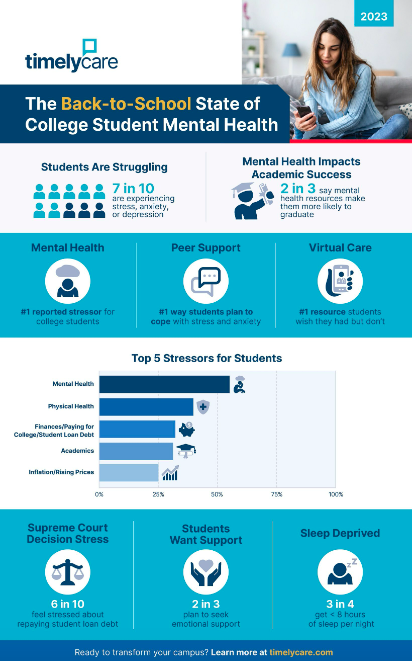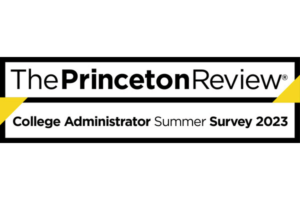Independent research published by leading international schools provider Nord Anglia Education this month shows that one in two young people (18–25 year olds) think their education helped them become digitally fluent and confident at using new technologies.
Conducted by Kantar for Nord Anglia Education, the global research looked into the life skills young people worldwide see as important. On average, only around half of the global Gen Z’ers (54%) agreed with the statement “their education helped them to become digitally fluent and comfortable using new technologies.” In India, 69% of the Gen Z’ers felt their education helped them become confident with new technologies, compared to their Gen Z peers in the USA and the UK, where only 51% and 42%, respectively, agreed with the statement.

Given the wave of new artificial intelligence and artificial generative intelligence tools, the research findings underline the importance of preparing students for the future, according to Nord Anglia.
In its recent article on AI in Education, Nord Anglia explains how ‘Artificial Intelligence and human intelligence are powerfully complementary’, and how this underpins its approach to helping students learn how — and when — to use the tool.
According to a July survey by The Princeton Review of administrators at 229 colleges nationwide, enrollments for fall 2023 are generally projected to be on par with those of fall 2022, admission test scores are optional at the majority of schools, and college level coursework (AP, IB, and dual enrollment) on applicants’ transcripts has gained in importance in admission decisions.
The Princeton Review’s College Administrator Summer 2023 Survey—the education services company’s 4th such annual survey—also asked administrators their views on trending topics. Among them: the Supreme Court’s ruling on affirmative action, the use of AI in college applications and admissions, and which issues will be the top concerns among students and among administrators at their institutions in the school year ahead.

Findings based on responses overall of surveyed administrators:
Key findings of the survey are below. A detailed report on the survey showing the 15 survey questions, answer choices, and the percent of respondents selecting each answer is downloadable at PrincetonReview.com here. The report presents findings by respondents overall, by school type (public/private) and by region. (See “About the Survey” below.)
- Fall 2023 enrollments are generally on par with or higher than those of fall 2022.
Nearly half (42%) of the respondents said their fall 2023 enrollment will be about the same as that of fall 2022; 37% said they expect it to be higher, and 21% expect it to be lower. - The majority of colleges were test-optional for fall 2023.
Nearly 9 out of 10 respondents (89%) said their institutions were test-optional (did not require but considered SAT,® ACT® or IB scores) for fall 2023. Only 1% said they required test scores; 10% said they were test blind/test free. Asked their admission test policies for 2024, 84% said they will be test-optional; 3% said they will require scores; 10% said they will be test blind/test free, and 3% said they are undecided. On a related topic: asked whether the Digital SAT (which debuts in the U.S. in spring 2024) will be an improvement over the current SAT, 9% said yes, 6% said no, and 85% were undecided. - College level coursework (AP, IB, and dual enrollment) on applicant transcripts has gained in importance in admission decisions.
Asked to rate the relative importance of AP, IB, and dual enrollment coursework on applicant transcripts, 61% of respondents deemed such coursework important or very important in admission decisions—a 7% increase over the 54% of respondents so indicating on The Princeton Review’s College Administrator Summer 2022 Survey. - The majority of colleges do not give preferences to legacy applicants.
Asked their institution’s policies with respect to legacy applicants, 84% of respondents said their schools do not (and will not) give preference to legacy applicants; 13% said they do and will continue this practice; 3% said they are eliminating legacy preferences. - The majority of administrators oppose the Supreme Court’s recent ruling overturning affirmative action.
Asked their opinion of this Supreme Court ruling, 95% of respondents said race conscious admissions should have been sustained while 5% were in support of the ruling. Asked whether the ruling will impact their institution’s ability to enroll diverse classes of students, 53% said it won’t, 43% said it will, and 4% said their institution does not have such enrollment objectives. Among the 43% of respondents believing the ruling will impact their enrollment objectives, 63% of them said their institution has plans in place to mitigate the impact, 36% said their school will develop plans to do this, and 1% said such plans do not exist and are not being considered by their institutions. - The majority of administrators believe college DEI (Diversity, Equity, Inclusion) initiatives should be protected and promoted.
Asked their opinion regarding proposals (or legislation) by governments, school boards, and others to block or restrict college DEI initiatives and programs, 98% of respondents said college DEI initiatives should be protected and promoted; 2% said they should be blocked or restricted. - Administrators’ opinions regarding the use of AI in college admissions are conflicted.
Asked their opinion of the current and potential use of AI-based resources by administrators as well as by students in the college application and admissions processes, 9% said they are excited about it and 15% said they are concerned about it. The majority (72%) of respondents said they are both excited and concerned about it; 4% said they have no opinion about it. - Affordability will be the key concern among students this school year while academics will be the key concern among administrators.
Respondents were asked to rank four topics according to which they expect will matter most among their students and which will matter most among their fellow administrators in this school year. The four topics were: academics (quality and quantity of course offerings), affordability (cost of attendance and level of financial aid for students), health (campus protocols and medical services) and social justice (commitments to diversity and addressing discrimination). The topics respondents ranked as likely to matter most among their school’s students this year are: #1 affordability, #2 academics, #3 social justice, and #4 health. The topics respondents ranked as likely to matter most among their fellow administrators this year are: #1 academics, #2 affordability, #3 social justice, and #4 health.
The Princeton Review’s College Administrator Summer 2023 Survey was conducted online from July 1 to July 28. The 15-question multiple-choice survey was sent to administrators at 599 institutions including schools in the company’s book The Best 389 Colleges: 2024 Edition (August 15, 2023) and schools featured in its website designation, 2024 Best Regional Colleges. The survey was completed by 229 administrators: 69% were from private colleges and 31% were from public colleges. The distribution of their school locations by region was: 28% Midwest, 22% Northeast,18% Mid-Atlantic,14% West, 12% South, and 6% Southwest. A full report on the survey showing findings by respondents overall, school type and region is downloadable here. An infographic depicting selected findings of the survey is posted here. Releases and reports on The Princeton Review’s 2022, 2021 and 2020 College Administrator Surveys can be found in the company’s Media Center.
College students are facing significant stress and sleep deprivation as they prepare for the fall semester, according to a recent survey by TimelyCare, higher education’s most trusted virtual health and well-being provider.
The survey, which gathered responses from 1,200 college students nationwide, highlights the ongoing mental health crisis on campuses and sheds light on the top stressors students are currently facing.
Mental health is the number one reason students drop out of college. According to the survey, it is clear students want support so they can stay enrolled, as 64% say they are more likely to graduate if they have access to mental health resources. An earlier survey found that nearly 60% of current college students accessed mental health care during their K-12 years.

The findings also reveal that 68% of students are struggling with mental health issues such as stress, anxiety, and depression. Financial concerns also weigh heavily on students, with two of their top five stressors revolving around money, and six in 10 (60%) reporting stress or anxiety about repaying their student loan debt since the Supreme Court ruling on loan forgiveness.
Other key findings include:
- An overwhelming majority (85%) of students say they are experiencing more or the same level of stress compared to this time last year.
- Students’ top five stressors include their own mental health (55%), their physical health (40%), their finances/paying for college or student loan debt (32%), their academics (31%) and inflation (25%).
- More than half (53%) of students report feeling stressed or anxious about the Supreme Court ruling on affirmative action and race in admissions.
- Additionally, more than half of the students (54%) are getting less than the recommended 7-9 hours of sleep per night, as suggested by the National Sleep Foundation.
“There will always be stressors out of students’ control and outside influences that will impact student mental health and well-being,” said Seli Fakorzi, Director of Mental Health Operations at TimelyCare. “The good news is that colleges and universities realize that the student mental health crisis is far from over, and they continue to invest in resources – like TimelyCare – that help bolster on-campus resources to build a connected system of care that supports student health and well-being and ultimately leads to stronger engagement and academic performance.”
While the mental health crisis among college students shows no signs of slowing down, one positive trend is the number of students who want to seek help.
- Students are actively seeking support. Two-thirds (66%) of students plan to seek out emotional support to manage their mental health this academic year.
- Students recognize the importance of community. The most common way students plan to cope with their stress or anxiety this semester is through their peers (54%), followed by their family (44%) and exercise (38%).
- Students are yearning for accessible mental health resources. Access to virtual counseling and mental health support through a teletherapy or virtual care app is the number one resource students wished their schools offered.
Pressure to Perform
Student-athletes, who face additional pressures such as intense practice, competition and travel schedules, also experience higher instances of mental health challenges.
The survey shows that mental health is a significant cause of stress and anxiety for more than half of student-athletes (52%), surpassing concerns about physical health, finances, and academics. Alarmingly, a lack of adequate sleep is prevalent among student-athletes, with 58% reporting getting six hours of sleep or fewer and 37% getting five or fewer. Research by the National Sleep Foundation has linked insufficient sleep to an increased risk of experiencing depressive symptoms.
Efforts by athletics departments and high-profile athletes to destigmatize mental health issues seem to be making a difference, as more than 90% of student-athletes express their intention to seek in-person or virtual counseling/mental health support in the coming year, compared to 75% of their classmates who are not athletes.
“Mental health crises are not scheduled – and we cannot expect college students to wait days or weeks for care during their darkest hours,” said Dr. Bob Booth, Chief Care Officer at TimelyCare. “Being able to connect with students whenever and wherever they are is crucial to help stop the cycle of sick care and start students on the fast track to personal and academic success so they can be well and thrive.”
The TimelyCare nationwide online survey conducted in July 2023 underscores the need for increased support and resources to address the ongoing crisis.
- Exploring Data Analytics in Higher Education Humanities - May 9, 2024
- Big Deals: New Higher Ed Product News from Element451, MachineTrader, and MathGPT - April 29, 2024
- How to Navigate the Wild West of Microcredentials - March 25, 2024

